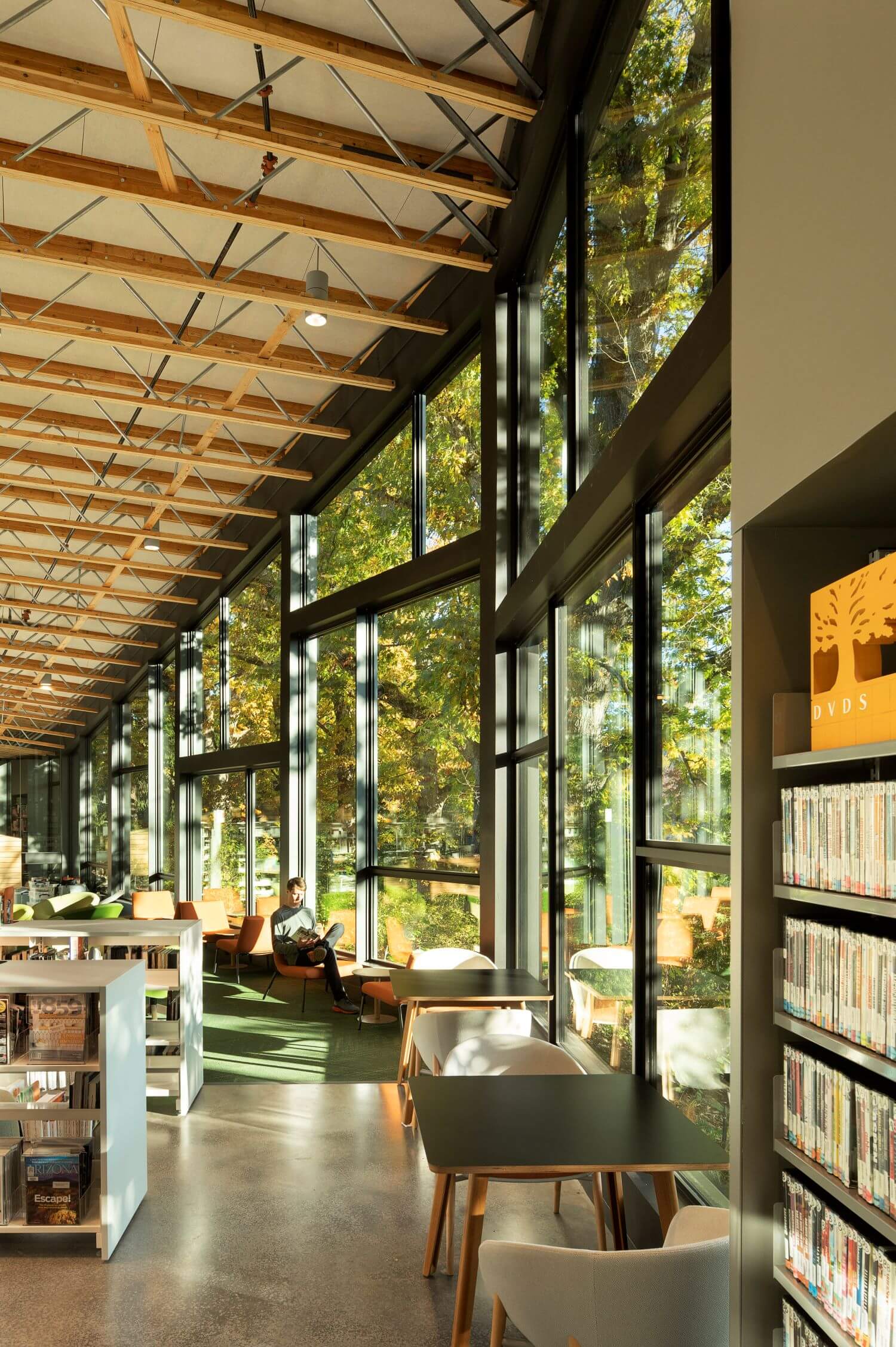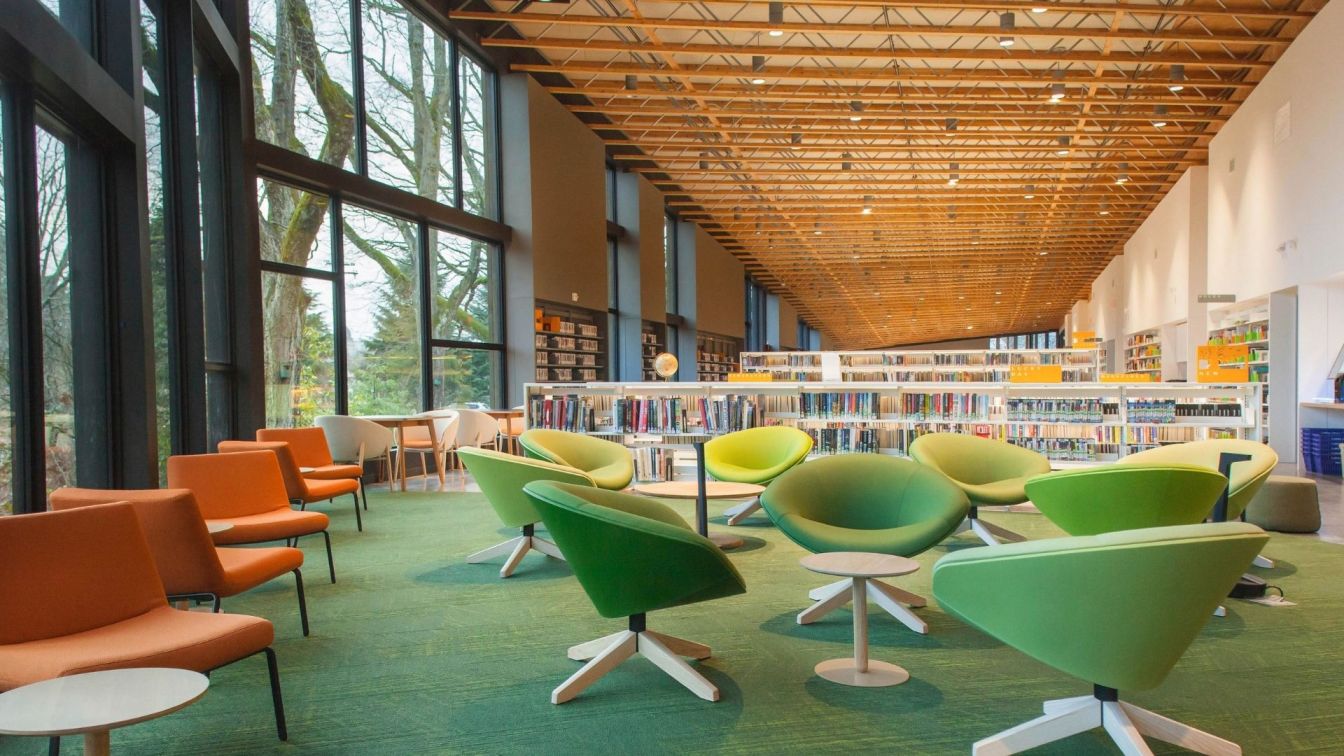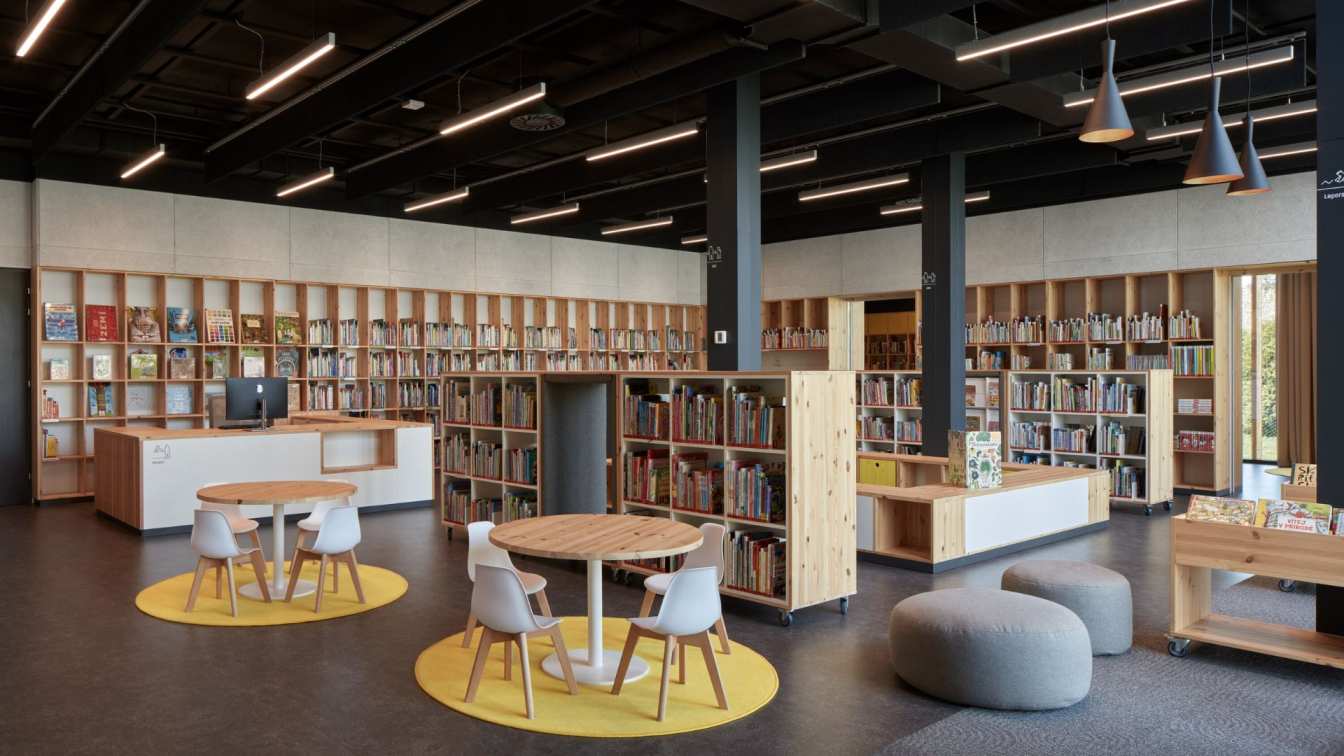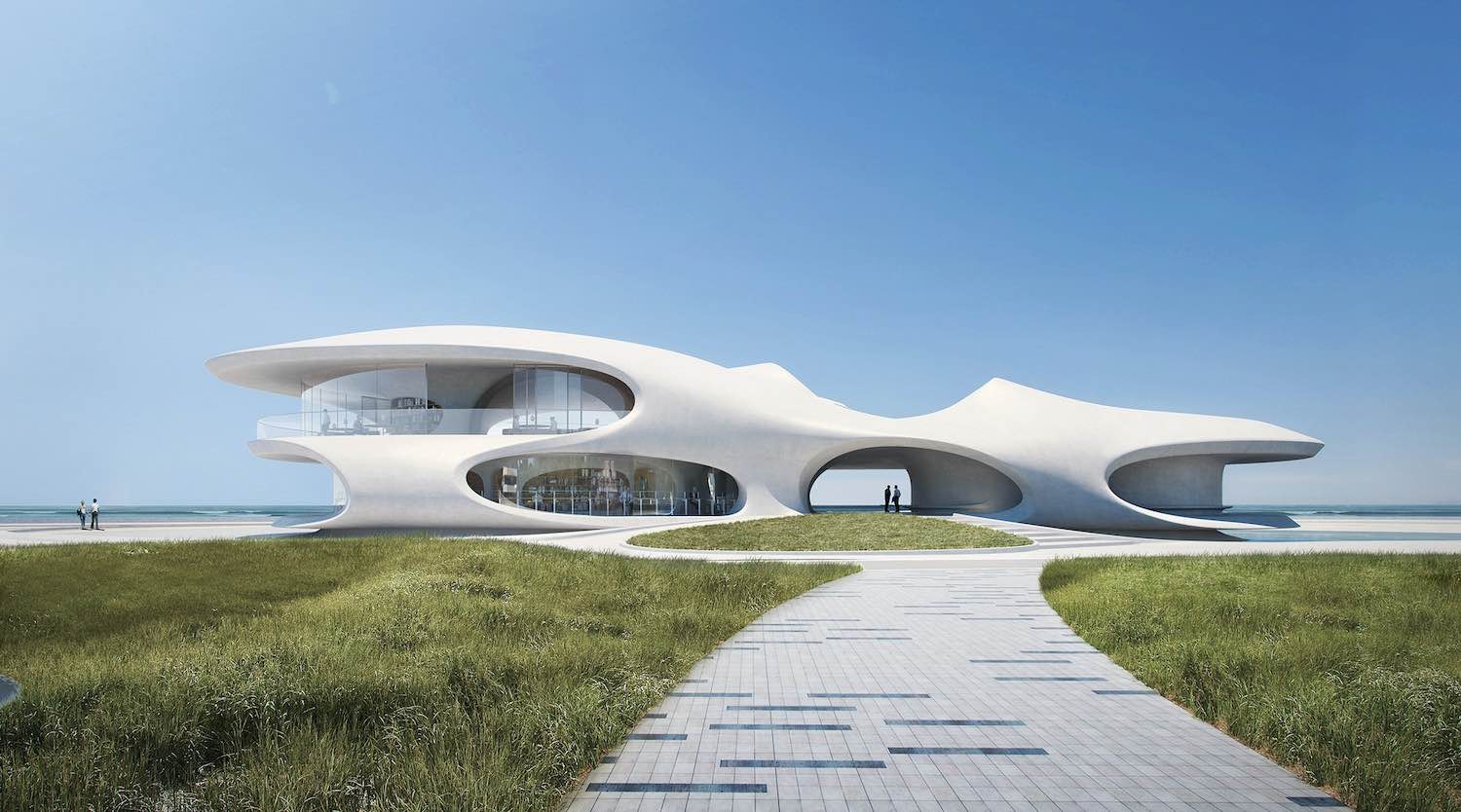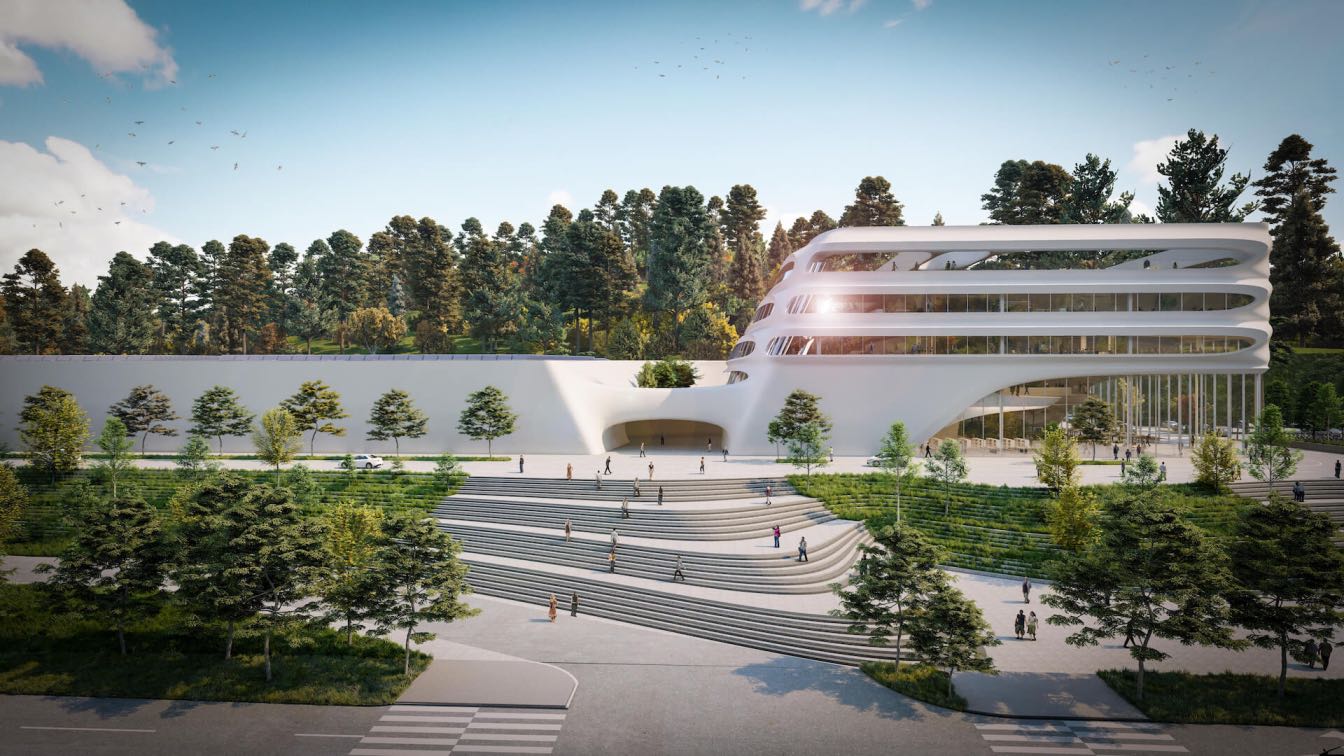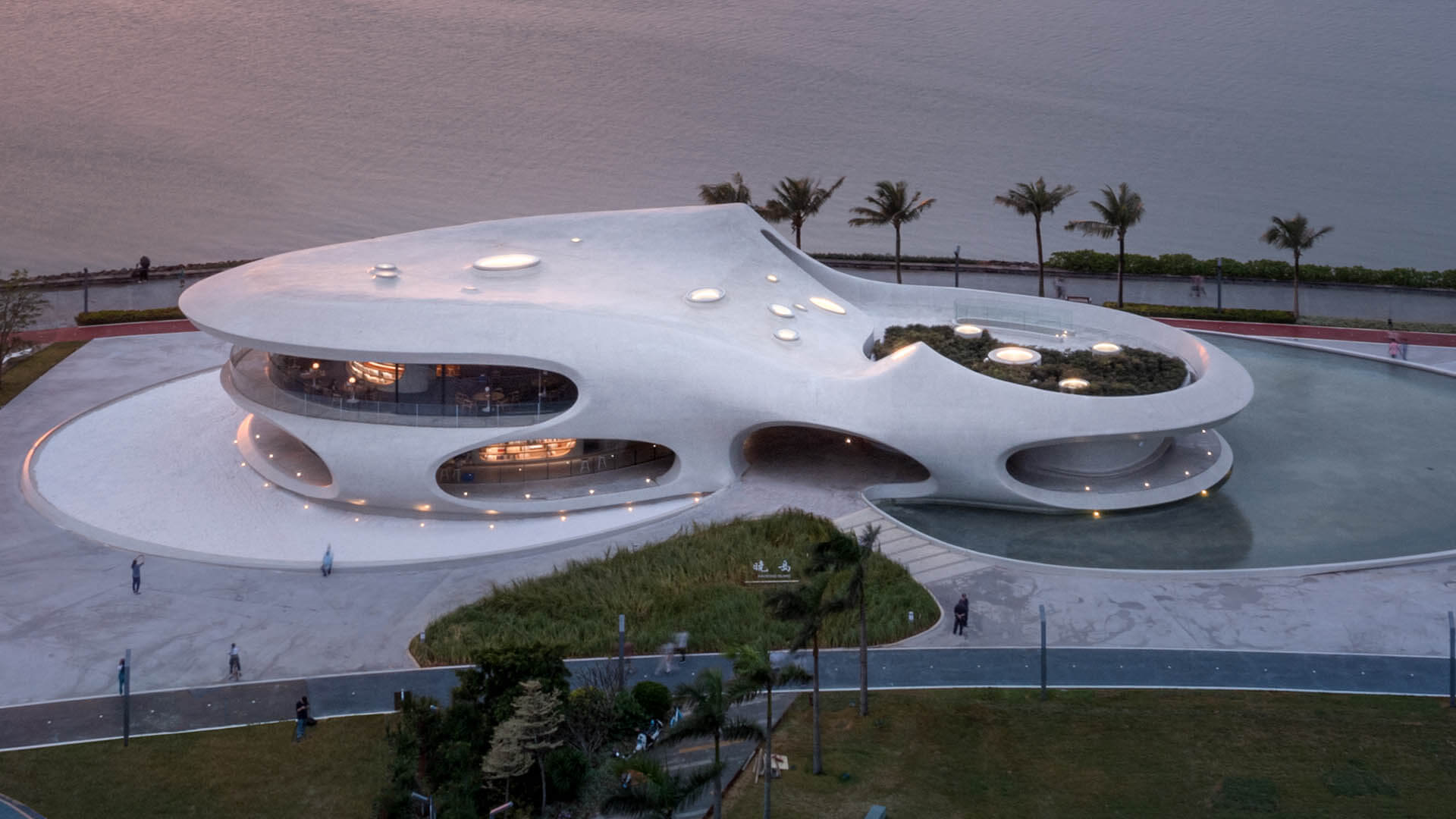Hacker Architects: The new 18,000-square-foot Ledding Library occupies a unique position at the edge of downtown Milwaukie, Oregon, between a wetland natural area, a city park, and City Hall. The design aims to create a civic presence for the library, reflecting its esteemed position in Milwaukie’s history, community, and downtown core, while taking advantage of the unique natural setting. Its form draws inspiration from the natural movement of rivers, bending across the site to capture sweeping views to the neighboring heritage Oak trees and water way. Extensive use of wood on both the exterior and interior help to blend the library with its surroundings, creating a warm, welcoming, vibrant atmosphere. The vision for the new library was driven by four main principles developed with library staff, community members, and city council.
People: Provide a vibrant community information hub that brings people together, stimulates imagination, and enriches lives.
Prosperity: Provide an innovative, state of the art, future thinking library that supports both community and individual endeavors.
Planet: The architecture enhances the experience of the surrounding landscape and is a model of sustainable and environmentally restorative design.
Place: The library is a welcoming, civic focal point that promotes education and understanding of Milwaukie’s culture, community, and history.

The original library opened in 1962 and occupied the donated, former home of Florence Olsen Ledding. Three additions were added to the original house creating structural, and utility complexities and challenges for accessibility, library operations, and flexibility. The decision to build new on the existing site shifted focus to capitalizing on the site’s strongest attribute: its adjacency to a scenic wetland pond and tributary to the Willamette River. The parking lot was reconfigured to run along the full western edge of the site, buffering the adjacency to neighboring apartment buildings and consolidating landscaped and natural areas to the east, along the waterway. Large windows along the eastern façade, shaded by large oaks, align with seating areas for reading with direct views out to the trees and pond. Thermal gain is controlled on the western facade with narrower windows and a broad entry canopy, providing afternoon shade.

The interior open library wraps around staff spaces, a large community room, small meeting spaces and building services. Patrons enter at the center of the building, welcomed by the prominent view to the Oaks and neighboring pond. Adult and children’s areas are pulled apart into the opposing reaches of the building form for acoustic and programmatic separation. The undulating ceiling form takes inspiration from the flow of water, the specific geometry being driven by exterior conditions and influences, such as the overhanging Oak canopy, as well as interior space shaping.
Holding true to the vision, the library has a highly efficient hydronic radiant slab mechanical system for heating and cooling the open library space. Window placements and sizes are optimized for daylight and thermal control. A roof-mounted, 40kW PV array further offsets energy use.

